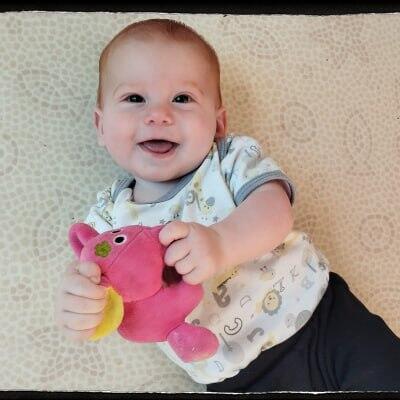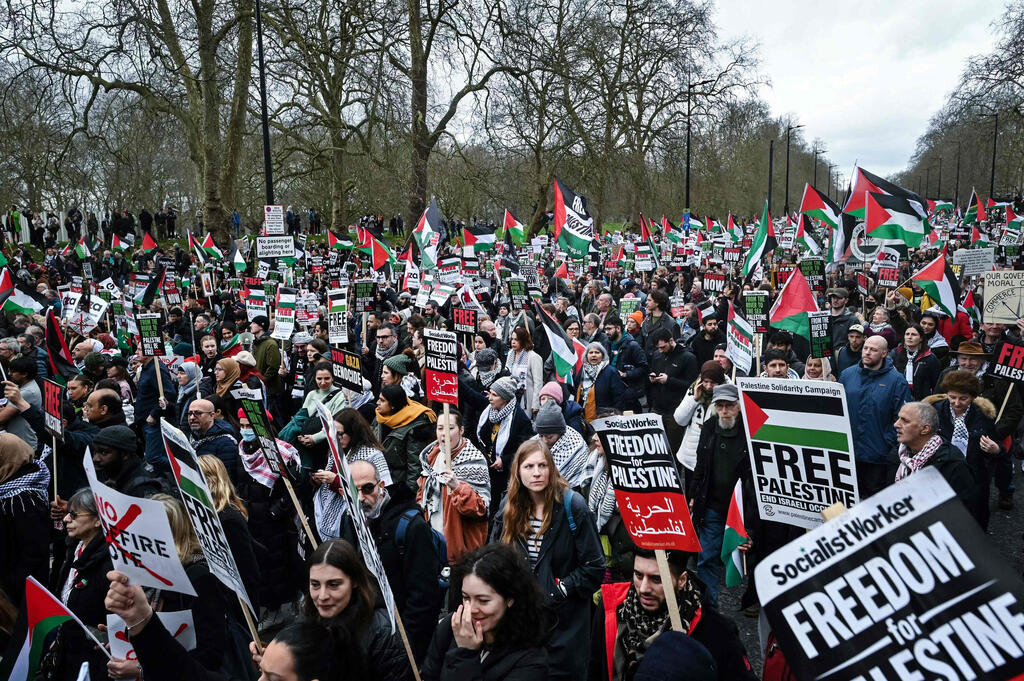Saturday morning, almost six ago, I browsed my Facebook feed and saw a strange photo that someone posted: Armed terrorists riding a van in a city, in broad daylight, and the caption: What is that, what is that, what am I seeing. I didn’t understand either. And I thought: such a weird joke. But the horror took over the doubt. And the gut feeling. And the news flashes that kept on coming in. And then everything. And ever since then – we count.
Gaza terrorists go on a rampage in the city of Sderot on October 7
The news every night. The stories. Absolutely no barrier between here and there - the immediate reaction, completely synchronized, by everyone, by us, reacting to the faces in the photos, to the stories – we don’t need someone to tell us: it could have been your daughter. Your brother. Your mother. We watch and we know. We watch and we feel. Everything is unbearably close. No need to make an effort to imagine. The opposite. Effort is needed to avoid imagining, to let go for just one moment of the visions of death, the rivers of blood, the discarded books, the tiny beds, the half-packed suitcases. All familiar as if it was home, our home.
We can’t work, we can’t walk, we can’t breathe, can’t be with the kids for a moment of simple happiness without envisioning the negative film. Like those movies where the superhero is gifted with a curse that forces them to stare into the heart of devastation, to the absolute and inevitable end destined for any living creature.
Tales of tumult: Israeli authors decode war
- Writing the untold when you can't find the words/ Tamar Merin
- If you speak the language of life, you must look reality in the eye/ Ofir Touche Gafla
- October 7, 2023, a day that will live in infamy/ Noa Menhaim
- A call: Help release the Israeli captives/ Yishai Sarid
Innocence has become privilege, happiness is privilege, simplicity is privilege. All this is taken from those who wait for their loved ones to come back and those who know that their loved ones will never come back.
Every motion folds its stillness, all demonstration of life carries its absence. Maybe those posters, hanging seemingly everywhere, carrying the hostages'' faces – maybe they cultivated the inevitable double perception.
In the past months, we have been conditioned to see this cry for help in a smile of a baby, in the face of the elderly. We can’t see pictures of families and babies without asking ourselves – kidnapped or murdered?
2 View gallery


Kfir Bibas, 1, held hostage by Hamas alongside his brother Ariel, 4, and parents Shiri and Yarden
Nobody uploads pictures of children to Facebook or family photos. It is perceived as a mean in-your-face gesture. Rubbing salt on the wound. A kid’s photo is rubbing salt. Someone wrote: Even the trigger warning is murdered. Everything is now a trigger warning.
And after a few oppressive, breathless months, we left. We wanted to breathe again, to sleep, to not worry that the kids would stay close to us all the time. The initial relief upon arriving in a foreign land (this is not an alarm – it’s just an ambulance passing by, that’s not an explosion – it is merely a ball thrown against a wall somewhere nearby) was soon to be replaced by a sense of guilt, by meaningless anger; here, people just hang around freely, strolling in the park, babies in carriers, a cup of coffee in hand.
This normality can drive you mad. We want to go back home. We stay. Waiting with the kids at the train station, attentive. Looking at the faces of strangers, listening to the multiple languages, we want to scream but we keep silent. The kids are shouting and we hush them: not now. Keep quiet. When we get off the train. Don’t say "Mommy." Don’t say "Daddy" now.
Why, why can’t I call you, cries my daughter. She is six and she is alarmed, this meaningless prohibition upsets her more than any family gathering in the shelter, more than any emergency drill at school. There she is required to move to another location, a safer place, to protect herself; that she can comply with. But the ban on speech, for her as natural as movement, overwhelms her with insult – an insult soaked with the grief of generations she cannot even call by name – my grief, and her father’s, trying to hush her, and our parents’, and their parents’.
Why can’t I speak Hebrew here? She cries. I immediately remove all prohibitions on language. I think of those children, crying for their short-handed parents, and those cries win at the silencing competition, they overcome my caution. Say "Mommy, say Daddy as much as you want," I tell her. But it is too late, she already adopts our suspicion and our fears. From now on the fear will drive her to hide her mother tongue, like hiding food under the mattress, a habit she will not remember its origin.
The train departs. A child sits on her grandfather’s lap in the colorful ad that hangs in front of us. We can try to peel the poster with our fingernails but there’s nothing behind it. Just an ad for candy. Everything here has only one dimension. Those who do not carry within them the abyss of these days will not observe the hidden layer. But we are still strangers to all that. The kids want to go back home. We want to go back home. For now, we are here.
Tales of tumult: Israeli authors decode war
- The danger in how the world sees Hamas/ Edna Shemesh
- Your prisoner is only a baby: a letter to the jailer/ Sagit Emmet
- I feel like the person in 'The Scream' painting/ Ricki Cohen
- War and pogroms: From 2023 to 1903 in just one day/ Dorit Silverman





